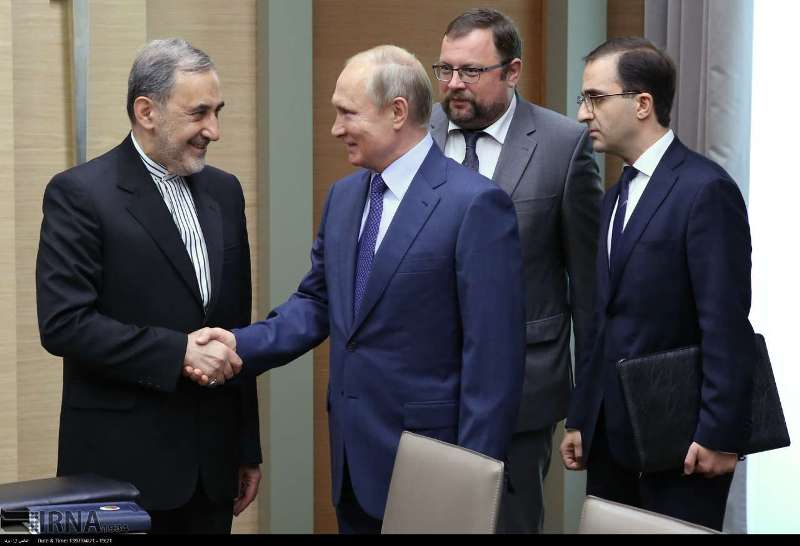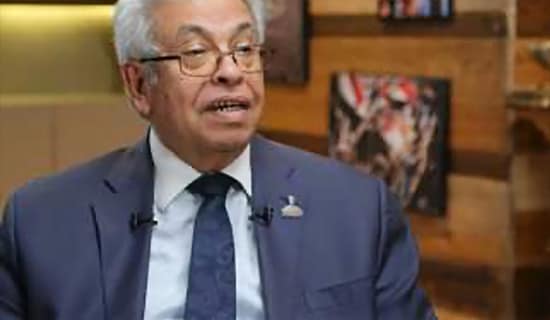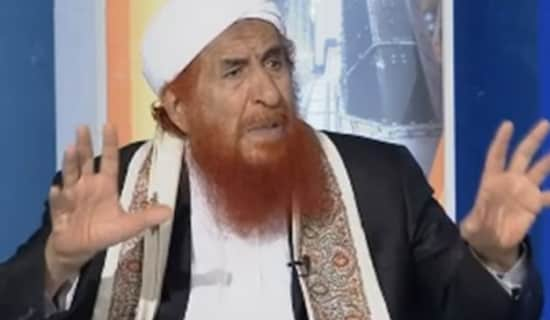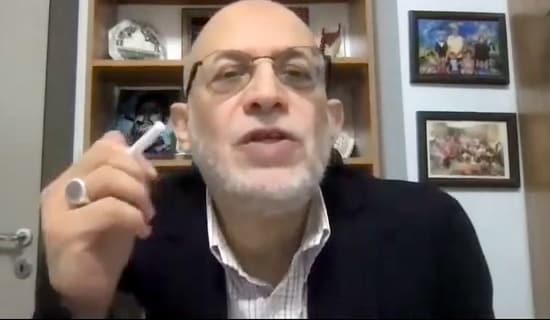Yulia Sveshnikova, a research associate at the National Research University Higher School of Economics, wrote an article for Rbc.ru,[1] titled "Alarm in Tehran: Why Did Iran Eagerly Await the results of the Helsinki Summit" in which she argued that a reversal of roles has taken place in Russia-Iran relations. If after the signing of the JCPOA (Joint Comprehensive Plan of Action), Russia feared that Iran would now prefer to improve relations with Washington at Moscow's expense, it is now Iran's turn to be worried. The Iranians fear that Russia (with whom the Iranians share a problematic history) may use Iran as a bargaining chip to secure concessions from the Americans in other areas. Since Tehran has low expectations from the Europeans, it must swallow slights from Russia and emphasize the bilateral military cooperation in Syria.
MEMRI's translation of Sveshnikova's article follows below:

Yulia Sveshnikova (Source: Republic.ru)
Iran Fears Russia Will Deliver It To Trump
"One of the topics discussed during the meeting between presidents Trump and Putin in Helsinki was the situation concerning Iran in connection with the US withdrawal from the nuclear deal and Washington’s efforts to restrict Iranian influence in Syria. The Americans are trying to press Moscow to abandon its neutral stance on this issue. Tehran fears that Trump may somehow have come to an agreement with Putin so that the latter will contribute to the complete withdrawal of the Iranian and pro-Iranian forces from the civil war-torn country.
"On July 12–13 in Moscow, literally on the eve of the [Trump-Putin] summit, Ali Akbar Velayati, adviser to the spiritual leader of Iran Ayatollah Ali Khamenei, tried to influence Russia’s position. It is not his first visit, and the official agenda is always approximately the same: political liaison, expanding economic cooperation, the Iranian nuclear program. Since Velayati’s previous visit to Moscow in February 2016, the setting has changed a little: at that time, Iranian and Russian analysts were discussing Russia’s concern about a possible Iranian-American rapprochement, whereas the meetings on July 12-13 have taken place in the period of clear exacerbation of the 'Iranian nuclear problem'. Now it’s Iran that is discussing the possibility of becoming a bargaining chip in the relations between Russia and the US. 'Can we trust Russia?' – this is an important domestic political issue, to which Velayati was evidently trying to find a positive response in Moscow.
SUPPORT OUR WORK

"On his arrival in Russia, the adviser did not go into detail of the two messages he brought to Vladimir Putin from Ali Khamenei and the president Hassan Rouhani, but by tradition, called the bilateral relations strategic. This characterization is still based on the cooperation in Syria and Russia’s support for the so called nuclear deal of 2015, as well as references to a “long-term agenda shared by the two countries”.

Velayati with Putin in Moscow (Source: Irna.ir)
"During the meeting of the Valdai [Discussion] Club in Moscow, Velayati confirmed that Iranian experts were in Syria and Iraq at the invitation of their legitimate governments and would leave those countries only if Damascus and Baghdad decided they no longer needed the help of Iranian military advisers. Thus, Tehran absolves itself of responsibility for its presence in the territory of foreign states. Resistance against the American and Israeli policy towards the countries of the region serves as a convenient ideological prop here, especially in a phrase like 'Iran and Russia stand together against the terrorists, encouraged by Washington and Tel Aviv'.
"Moscow’s recent rhetoric does not contradict these statements. On June 28, Russia’s representative in the US Vasily Nebenzya acknowledged the legitimate grounds for the Iranian presence in Syria in his speech, although Moscow emphasized many times the necessity of withdrawing all foreign forces from that сountry's territory. Nevertheless, Moscow prefers to speak guardedly about its relations with Iran. For example, at every Shanghai Cooperation Organization (SCO) summit, declarations repeat themselves about Russia’s positive attitude to Iran’s [assuming] full membership (it applied back in 2008), but so far there has been no change in Teheran's status.
"Following the outcome of negotiations in Moscow, Velayati announced that Russian companies were ready to invest $50 billion in the Islamic Republic's energy sector and said that would afford compensation for the withdrawal of the European business, which has to comply with US sanctions against Iran. The Kremlin, however, did not hurry to confirm these investments, and the energy minister Alexander Novak said that the Russian offer to Iran remains the same — oil in exchange for goods.
"After Trump’s decision in May to withdraw from the nuclear agreement with Iran, Tehran retained expectations for Europe’s support. But despite the European leaders’ discontent with the new US sanctions, hopes for the support of European business are slim. That is why, after the de facto failure of the nuclear deal — president Rouhani’s main achievement — Iran’s conservative elite strives to demonstrate unity with the countries of the anti-American front: Russia and China, where, by the way, Velayati went right after Moscow."
Iran Swallows Russian Slights
"However, the Iranians has scores of complaints against Russia. In addition to those that have been long discussed— the refusal to supply S-300 systems in 2012 because of the UN sanctions, the drawn-out construction of the Bushehr nuclear power plant — there are new ones. They include: Russia’s readiness, together with Saudi Arabia, to increase its oil export in the OPEC+ format, Israeli prime minister Benjamin Netanyahu’s frequent visits to Moscow, and Russian silence regarding the strike against Iranian targets in Syria on May 10, the very next day following [yet] another Netanyahu-Putin meeting. One can also recall the recent statement by Deputy Foreign Minister Sergei Ryabkov that the idea of working out a new agreement, supplementing the JCPOA [Joint Comprehensive Plan of Action] was 'worth looking into', while the Iranians stated more than once that any addenda to the nuclear deal were unacceptable. But in this case, official Tehran has chosen to keep the unpleasant reflections for later, organizing Velayati’s meeting with Putin the day after Netanyahu’s and only a few days before the Helsinki summit.
"Military cooperation in Syria remains the best way to emphasize the close relationship between the two countries. For good reason, Velayati hastened to mention Putin’s agreement to visit Tehran soon for another 'Astana troika' meeting.
"The Iranian conservatives love to repeat that the people have long gotten used to sanctions pressure, but the actual situation in Iran is more severe than in 2012, when the harshest UN sanctions were introduced. It is evident that increased isolation would be highly undesirable in this context, and that is why communication between the Supreme Leader and the President of Russia was needed. The attempt to present the Russian-Iranian relations in the framework of the Cold War paradigm, when the US is the principal enemy, seems to be the best scenario in Tehran, where the nominally liberal and pro-Western president Rouhani has long been under the threat of impeachment."
[1] Rbc.ru, July 17, 2018




